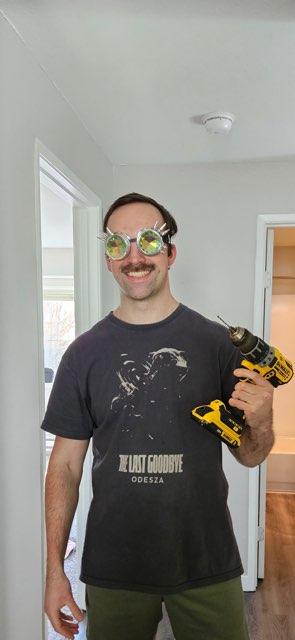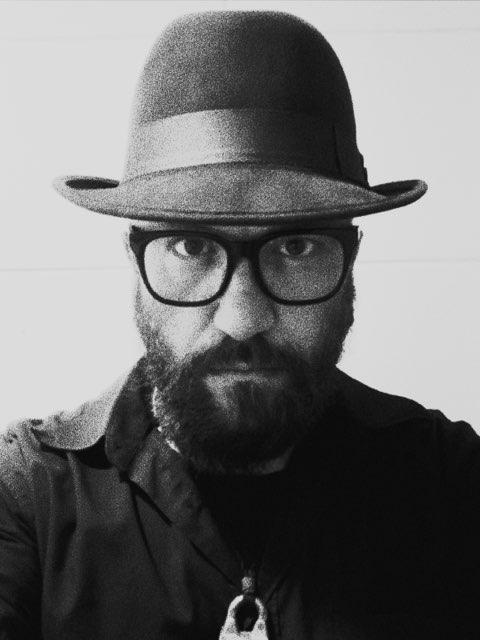
Perfect Days
4.4
(72)
Drama
2023
124 min
PG
Hirayama is content with his life as a toilet cleaner in Tokyo. Outside of his structured routine, he cherishes music on cassette tapes, books, and taking photos of trees. Through unexpected encounters, he reflects on finding beauty in the world.
Starring:
Koji Yakusho
,
Tokio Emoto
,
Arisa Nakano
,
Aoi Yamada
,
Yumi Asou
,
Sayuri Ishikawa
,
Tomokazu Miura
Drama
AD
Community ReviewsSee all
"A life is lived in moments. This film celebrates the moments with barely a plot. It depicts a man’s life lived in its rather boring repetiveness. The man looks for small changes and radiates kindness in a life lived well, if in the moments. A tribute to balance and beauty in noticing those moments. Beautiful and elegiac. Komorebi is the Japanese word for shadows of light through leaves and is a key concept in the film."
"Perfect Days? More like PERFECT MOVIE *ba dum tsssss*🥁. This is one of the sweetest, most optimistic movies I’ve seen since Patterson (2016). Win Wenders uses the daily routine of a Tokyo toilet cleaner to capture the beauty of our ordinary lives. In an age when nearly every piece of media is filled with drama or chaos that has to be overcome, Perfect Days is refreshing because it tells the story of a man who chooses to not participate in any of that. You can definitely feel a Buddhist influence in this film. "
"Perfect Days is a beautiful, meditative film that encourages you to think about the little moments in life. It follows Hirayama, a toilet cleaner in Tokyo, as he goes through his "mundane", daily routine. His often contemplative response with the world around him shows how even the simplest tasks can be meaningful.
The visuals are stunning, capturing the beauty of everyday life and reminding us to slow down and appreciate the small things we often overlook. As Hirayama moves through his days, it feels like it creates space for us to reflect on our own lives and what truly matters. In the end, Perfect Days is a gentle reminder that happiness can be found in the ordinary.
"If while washing dishes, we think only of the cup of tea that awaits us, thus hurrying to get the dishes out of the way as if they were a nuisance, then we are not ‘washing the dishes to wash the dishes.’ What’s more, we are not alive during the time we are washing the dishes. In fact we are completely incapable of realizing the miracle of life while standing at the sink." - Thich Nhat Hanh
#sliceoflife #comfort "
"+ Watching PERFECT DAYS felt like an experience in meditation. I don't only mean that the narrative was meditative on this or that theme, but the way the main character goes through his Zen-like rituals soothed my mind. It isn't only about his job and rituals, but about all the little things that add up to what we call life. This movie is an ode to moments, but more, it is a love letter to The Present Moment. The entire narrative unfolds in such simple and direct fashion and depicts life in such a way that it doesn't glorify the little things, but it also doesn't reduce them to the word "mundane". There is a beautiful, almost childlike appreciation for the things we overlook on our way to the grave, and then wonder where life went. The main performance is beautifully understated and fitting for the themes. Since the narrative isn't eventful in the conventional sense we are treated to some beautifully composed shots that pay tribute to the old minimalistic Japanese films where the camera frames the interiors so that the screen is organized into the small Japanese style squares of the apartment, and in a similar style with the huge highrise buildings of Tokyo. Many of these shots would make beautiful, elegant still photography.
The film is shot to chronicle the main character's ritualistic day-to-day life, which may become repetitive for some, but I would like to point out the intention that goes with it. In watching movies like John Wick and Deadpool I notice that, even for these types of movies, it isn't uncommon for the action to repeat itself over and over, but mainly to fill narrative space and give the audience a dopamine release every couple seconds. In a movie like this the lens points to the repetition, not to kill time or fill space, but to illustrate a bigger idea and to revere and honor the things we tend to take for granted. In seeing it play out through this lens, it was a profound experience."
"The contemplation of simplicity, the movie is nothing more than a mixture of contemplation and observation, in an almost documentary tone, all very close up. It doesn't need many words, because the expressions and looks already say it all. The almost meditative feeling provokes reflections on ourselves.
A beautiful masterpiece of life."
"This film could have made a tonal shift in these moments, but it stays true to itself and the path we have traveled. Things are left unsaid. Moments between Hirayama, Niko, and her mother are allowed to linger. We never get a clear picture (this includes the purpose of the photos Hirayama takes). To make this choice as a filmmaker is a hard one. Audiences so often demand closure. They like stories tied up in neat little packages. Wim Wender refuses that urge and pressure. Instead, he allows the camera to focus on the main character as tears stream down his face. Then he asks us to question perfection."












